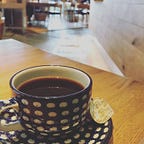We believe “Good for creators” mans good for all stakeholders.
As “sustainability” become a trendy word around the world, consumers passionate about knowing whether the people that make our clothes and accessories earn fair wages and work in safe and ethical conditions. However, we felt there are few detail infomations how it is being made.
Therefore, in this article, we would like to tell how the products being made step by step in our factory which committed to adhere and maintain fair trade principles as an example of ethical brand. We hope this will help understanding of ethical brands and our brand.
Our loacal partner, Palli Crafts work with around 350 artisans. It currently operates in Dhaka, Savar, Tongi, Jamalpur, Barishalmainly in Bangladesh.
There are three types of producer groups which has agreement with Palli Crafts, we have:
a. Own production centers
b. Home based artisans
c. Individual producer groups
We eaqualiy treated them as “skilled artisans” and ask them based on their profession. As for our product line, “Ami tumi waraji”, one company which has own production centers in charge of creating products. The process categorized in four phases.
#Youtube Video
Three people will make waraji from start to finish. Since Waraji is not commonly use in bangladesh, we needed to train artisans. However, they already become skilled artisans. After it has been made, move on to quality check by the owner, Palli crafts( local partner) and our representatives.
Although it is handmade products which no other products are same, we have criteria as a products, such as color, size and desgins, in order to keep promise to our customers. If it doesn’t meet the standards, we will explain and ask our artisans to improve the quality fail points. As it is fully handmade, so it can be able to open the waraji bindings and again make it. We do not waste materials and artisans time. We consider non qualified products is the best materials for learning how it should be made for artisans. It takes about 1.5 month from starting first step to fininshing quality check process.
You may thought, it is very basic process and not so special. However, not only fair wages, but also how they are treated at factory is crucially important. At Palli crafts, they provide online work training and fund disadvantaged women for buying machines and also on emergency food supply to the flood victims.
Palli crafts take holistical approach to improve staff’s working enviorment.
We believe that there are more challenges to overcome though, by empowering individuals will lead to create better future in Bangladesh and all over the world.
